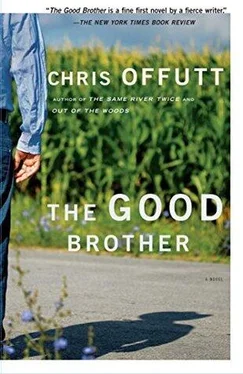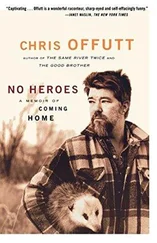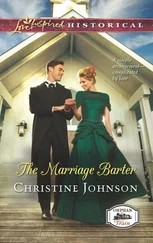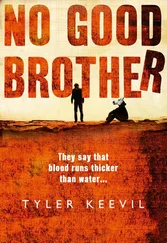He left the road for a faint game trail into the woods. The liquor made his throat ache. The foliage in the hollow was thick and green, marking water, and he moved down the slope to a creek that swarmed with gnats. Toadstools broke to white chunks like cake beneath his boots. The hills lost their tight slant, opening into softwood glades glowing from the horizontal light of afternoon.
Virgil sat and drank. The creek ran wide and slow. He thought about leaving but didn’t know where to go. So many people from the hills had headed north for work that a Pittsburgh neighborhood was called “Pennsyl-tucky.” He had cousins there. He drank some whisky. He’d never been a big drinker, and he suddenly knew why people liked it. Liquor made you feel better, but first you had to feel pretty bad and Virgil never really had. He’d liked himself and the world he lived in. He wondered what Boyd had felt so bad about to drink as much as he did.
He took another drink and stood and nearly fell. Half the whisky was gone. He felt as if it were sloshing in his head. He capped the bottle and walked. The hills cast a heavy shadow, and he wanted out of the hollow by dusk. If he didn’t make the road, he needed to be on a ridge at least, where enough spare light still burned in the sky. Memory trickled through his mind like an underground stream against a limestone bed, finding its way through tiny cracks — Boyd asking if Virgil wanted a Hertz doughnut, then hitting him in the arm and saying, “Hurts, don’t it”; Boyd reading the Bible for the good parts in Ezekiel where Aholibah was condemned for harlotry she’d learned from the Egyptians; Boyd teaching him to play poker with a greasy deck of cards.
Virgil stopped for another drink and dropped the lid to the whisky. When he stooped for it, he lost his balance and fell to the damp earth. He rolled on his back and stared at the section of sky visible between the hills. Treetops swayed as if clawing at the stars.
He closed his eyes and felt dizzy and opened them. The dark had come fast, like floodwater that flowed over the land. He stood and began moving with the precise steps of a drunk. Lightning bugs flicked yellow spots through the trees. Dead leaves clung to the mud on his clothes. He was near a road. He heard the rattle of an engine not hitting all its cylinders and recognized it as a car driven by a man from work and knew he could have gotten a ride. The moon’s light moved through the night.
He slipped to his knees as he climbed the bank and wondered why blacktop looked pale at night. He didn’t care which way a car came, he’d go with whoever stopped and get out where they were going. Boyd had done that twenty years ago. Virgil was getting a late start at everything. He wished a helicopter would pick him up and drop him somewhere.
Virgil leaned against a sycamore. The desert was too hot, the North was too cold, cities were too big, and the Midwest was too flat. He chuckled. He couldn’t even decide which way to go on The Road, let alone the whole country. It didn’t matter. Nothing did. He felt fine. He finished the bottle and opened another. He should have gotten drunk and thought about things sooner. It occurred to him that if he was going to leave, he might as well go ahead and kill Rodale first.
Car lights came around the curve and Virgil stuck his thumb out, squinting against the harsh flare of light, A pickup braked to a stop, and the driver leaned his head out the window.
“Can you drink a cold one?” he said.
“Yeah,” Virgil said.
“Get in, then.”
Virgil climbed inside the cab. A bedsheet covered the seat, the comers tucked beneath the springs. The driver wasn’t wearing a shirt. He handed Virgil a can of beer.
“You’re the first damn hitchhiker ever I did see.”
“First time I done it,” Virgil said.
“By God, my brother-in-law hitched four miles to the store, and like to never heard the end of it from the family.”
“How come?”
“They took it as him putting a stranger ahead of kin.”
“Well.”
“Hatingest folks in all creation. Ain’t two good ones to the whole bunch. That’s why I’m celebrating.”
He mashed the accelerator and left twin streaks of rubber on the road. The rear fishtailed before slowing at Pig Berry curve. Beer spilled on Virgil’s clothes.
“You best watch,” Virgil said. “The law sets up here a lot.”
“A man wants to drive fast, it’s his business. What’s your name anyhow.”
“Virgil Caudill.”
“They’s gobs of you all, ain’t they.”
“Around here there is.”
“I’m Arlow Atkins. From Pick County. Ain’t got a smoke, do you?”
“Not on me,” Virgil said. “What are we celebrating?”
“I quit my wife tonight.”
“For good?”
“I hope to God for good. Know what she done this time?”
“No.”
“Cut the fingertips out of my gloves. Left them laying in a pile like deer sign by the couch.”
“What over?”
“Porch steps.”
“Were you supposed to fix them?”
“No,” Arlow said. “I gave them away.”
“Gave away the porch steps?”
“They was concrete block, stacked. First my brother needed one, then my cousin, and my nephew. Didn’t take too long before they was gone.”
“A man can always get block.”
“That’s what I told my wife. She said yes, but did everybody have to get them off us.”
They crossed the creek and entered a hard curve. Car parts lay scattered down the creek from previous wrecks. The truck tires skipped but held to the blacktop, and they were out of the curve and hurtling down a straight stretch. Arlow tossed his empty can out the window.
“Reach me another,” he said to Virgil. “And take one for your ownself.”
“Where you headed anyhow?”
“Just running the roads. You got anywhere to be?” Virgil shook his head. He pulled an unopened half-pint from his pocket.
“You don’t care to take a drink of whisky, do you?”
“By God,” Arlow said. “I knowed they was a reason I stopped for you, I guess you’ll light up one of them, left-handed cigarettes next.”
“I don’t reckon.”
Virgil drank the neck and shoulders out of the bottle and passed it to Arlow, The outside air was black. Boyd had lived like this all his life and for the first time Virgil understood how a man could get in the habit. It was fun and there was a sense of freedom and risk, the anticipation of an unknown outcome.
Arlow swerved to avoid a raccoon crossing the road. “Ever think how a coon is close to human?” he said. “They got hands and they wash everything they eat first.”
“It ain’t something I ever worried much over.”
“You think a coon or possum eats more?”
“A coon my opinion.”
“Possum.”
“A coon’s belly is bigger,” Virgil said. “You can tell by looking.”
“Ever see in a possum’s mouth?”
“I’m proud to say I ain’t.”
“Well, you ort to. They got about a hundred teeth.”
“They don’t done it,”
“Damn straight,” Arlow said. “One was to bite you, you’d know it. A possum will fiat pour the teeth to you.”
“That don’t mean its belly holds more. They’s many a coon the size of a dog.”
“Any more of that whisky left?”
Virgil handed him the bottle. Arlow took a drink while simultaneously downshifting for a curve, flicking a cigarette out the window, and adjusting the beer between his thighs. Virgil drank some beer and felt like spitting. They were past the turnoff to his house, near the county line.
“How do you know so much on possum teeth?” he said.
“Took me a good long gander at one stuffed.”
Читать дальше












